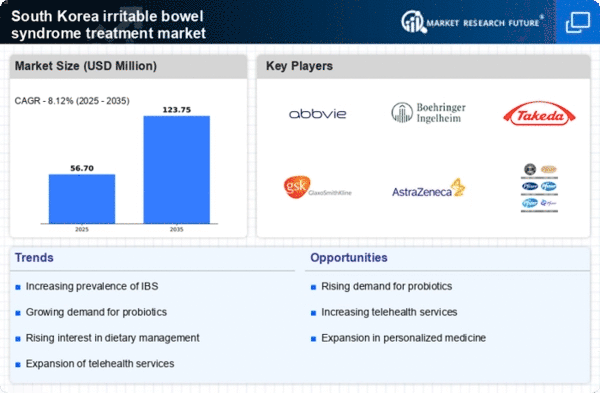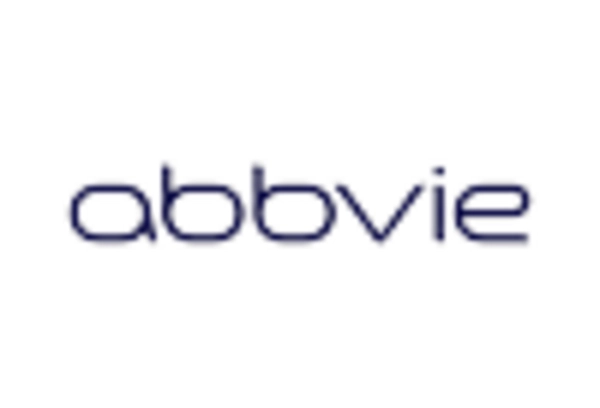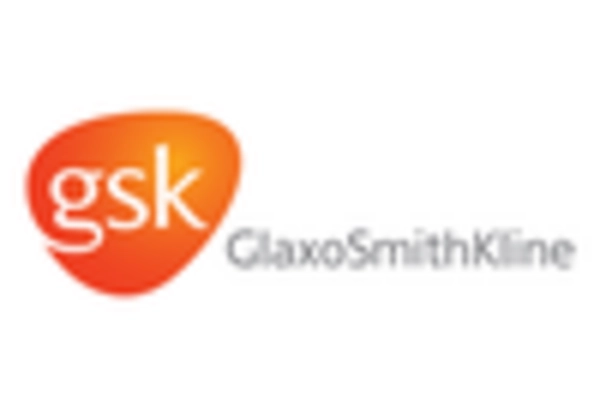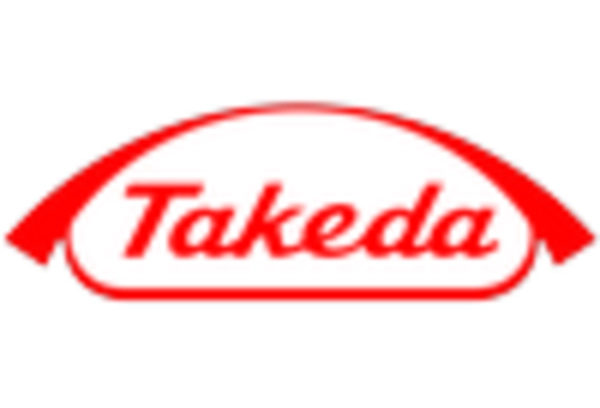Rising Prevalence of IBS
The increasing prevalence of irritable bowel syndrome (IBS) in South Korea is a significant driver for the irritable bowel-syndrome-treatment market. Recent studies indicate that approximately 10-15% of the population may experience IBS symptoms, leading to a growing demand for effective treatment options. This rise in cases is attributed to various factors, including dietary habits, stress levels, and lifestyle changes. As awareness of IBS increases, more individuals seek medical advice and treatment, thereby expanding the market. The healthcare system in South Korea is adapting to this trend by enhancing diagnostic capabilities and treatment protocols, which further stimulates market growth. Consequently, pharmaceutical companies are investing in research and development to create innovative therapies tailored to the unique needs of the South Korean population, thereby driving the irritable bowel-syndrome-treatment market forward.
Increased Awareness and Education
Increased awareness and education regarding irritable bowel syndrome (IBS) are vital drivers for the irritable bowel-syndrome-treatment market. Healthcare professionals and organizations are actively promoting knowledge about IBS, its symptoms, and available treatment options. This educational push is crucial in reducing stigma and encouraging individuals to seek help for their gastrointestinal issues. As more people become informed about IBS, the likelihood of early diagnosis and treatment increases, which can lead to better health outcomes. Additionally, public health campaigns in South Korea are focusing on gastrointestinal health, further enhancing awareness. This growing understanding among both patients and healthcare providers is expected to contribute positively to the market, as it fosters a more proactive approach to managing IBS and encourages the development of new treatment modalities.
Focus on Holistic Treatment Approaches
The growing focus on holistic treatment approaches is influencing the irritable bowel-syndrome-treatment market. Patients are increasingly seeking comprehensive care that addresses not only the physical symptoms of IBS but also the psychological and emotional aspects of the condition. This trend is prompting healthcare providers in South Korea to adopt multidisciplinary treatment strategies, incorporating dietary management, psychological support, and lifestyle modifications alongside pharmacological interventions. Research suggests that such integrative approaches can lead to improved patient outcomes and satisfaction. As the demand for holistic care rises, the irritable bowel-syndrome-treatment market is likely to expand, with more practitioners offering a range of services that cater to the diverse needs of IBS patients.
Advancements in Pharmaceutical Research
Advancements in pharmaceutical research are propelling the irritable bowel-syndrome-treatment market in South Korea. The development of new medications, including novel classes of drugs that target specific symptoms of IBS, is enhancing treatment options available to patients. Recent approvals of medications that focus on gut-brain interactions and motility disorders have shown promising results in clinical trials. This innovation is crucial, as it addresses the unmet needs of patients who have not responded to traditional therapies. Furthermore, the South Korean government supports research initiatives aimed at improving gastrointestinal health, which may lead to increased funding and resources for the development of new treatments. As a result, the irritable bowel-syndrome-treatment market is likely to experience growth driven by these advancements, providing patients with more effective and personalized treatment solutions.
Technological Integration in Healthcare
The integration of technology in healthcare is transforming the irritable bowel-syndrome-treatment market. Digital health solutions, such as mobile applications and telemedicine, are becoming increasingly popular among patients seeking management tools for their IBS symptoms. These technologies facilitate better communication between patients and healthcare providers, allowing for more personalized treatment plans. Moreover, data analytics and artificial intelligence are being utilized to enhance diagnostic accuracy and treatment efficacy. In South Korea, the government is promoting digital health initiatives, which may lead to increased adoption of these technologies in managing IBS. As a result, the irritable bowel-syndrome-treatment market is likely to benefit from this technological evolution, providing patients with innovative tools to manage their condition effectively.

















